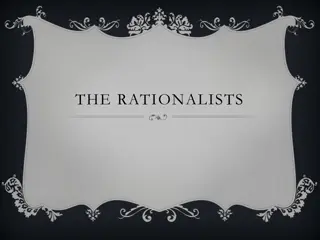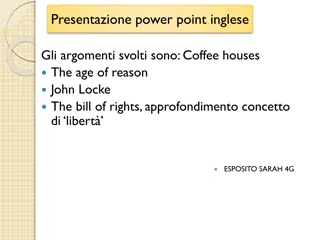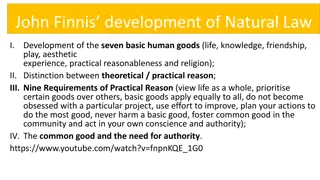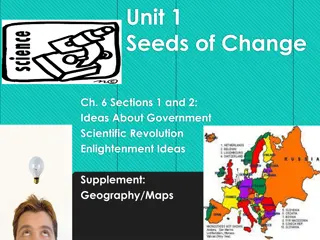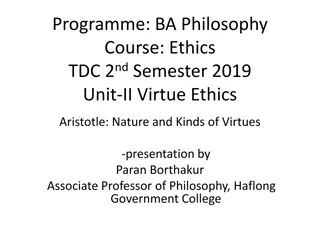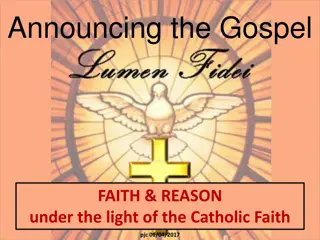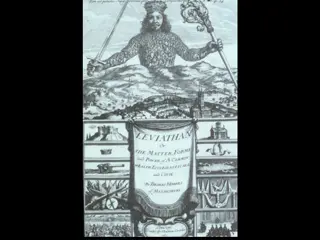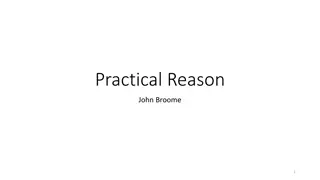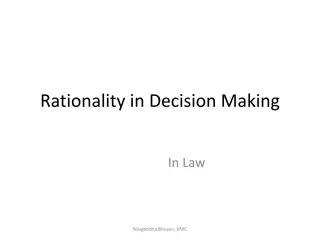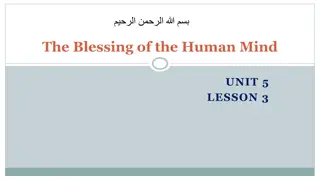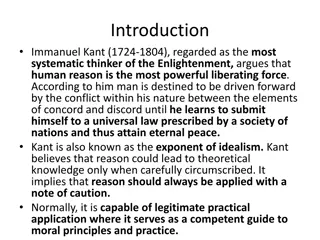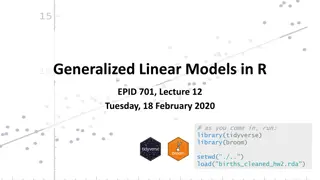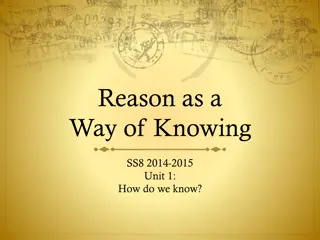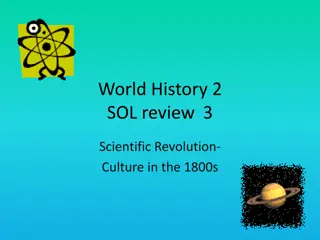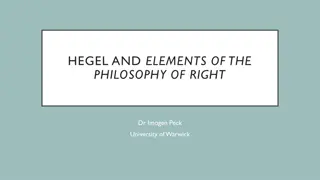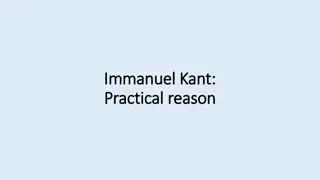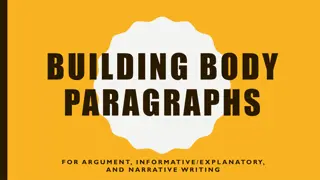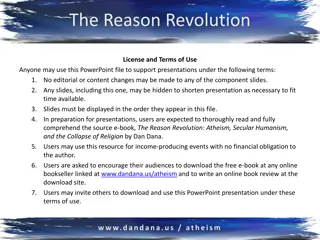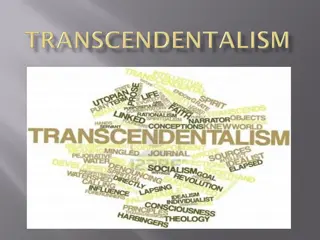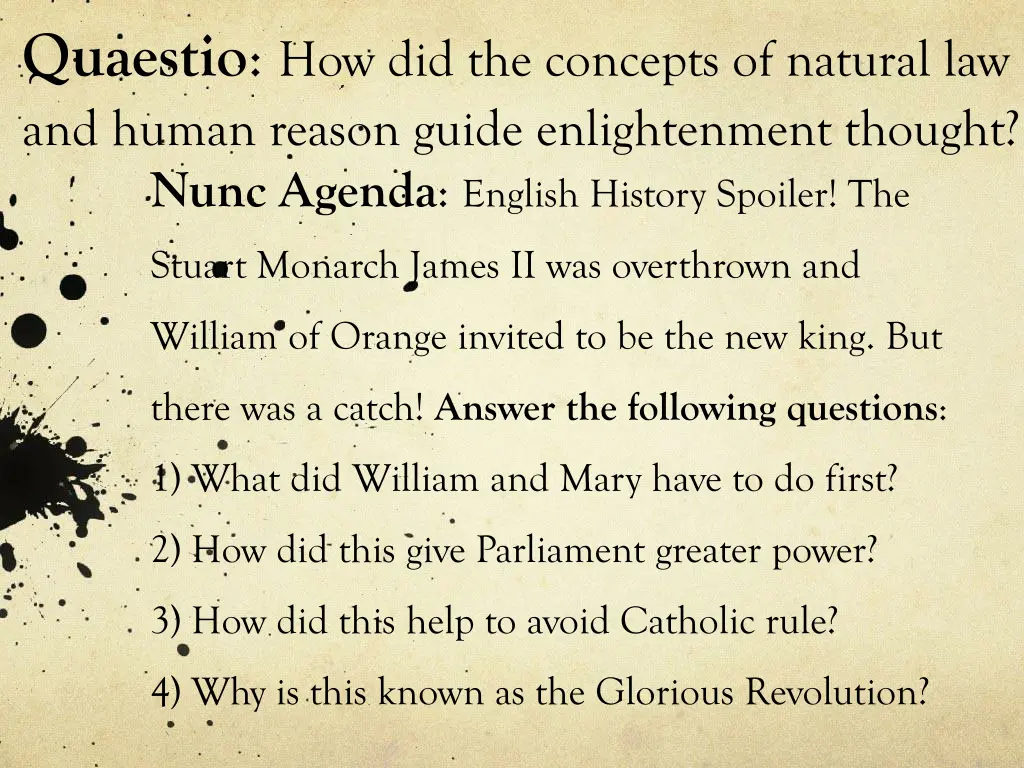
Enlightenment Thought: Natural Law & Human Reason
Explore how the concepts of natural law and human reason guided Enlightenment thought, leading to a shift towards reason-based solutions and governance away from religious authority in Europe.
Download Presentation

Please find below an Image/Link to download the presentation.
The content on the website is provided AS IS for your information and personal use only. It may not be sold, licensed, or shared on other websites without obtaining consent from the author. If you encounter any issues during the download, it is possible that the publisher has removed the file from their server.
You are allowed to download the files provided on this website for personal or commercial use, subject to the condition that they are used lawfully. All files are the property of their respective owners.
The content on the website is provided AS IS for your information and personal use only. It may not be sold, licensed, or shared on other websites without obtaining consent from the author.
E N D
Presentation Transcript
Quaestio: How did the concepts of natural law and human reason guide enlightenment thought? Nunc Agenda: English History Spoiler! The Stuart Monarch James II was overthrown and William of Orange invited to be the new king. But there was a catch! Answer the following questions: 1) What did William and Mary have to do first? 2) How did this give Parliament greater power? 3) How did this help to avoid Catholic rule? 4) Why is this known as the Glorious Revolution?
Quaestio: How did the concepts of natural law and human reason guide enlightenment thought? That the pretended power of suspending of laws, or the execution of laws, by regal authority, without the consent of parliament, is illegal... That the election of members of parliament ought to be free... That the freedom of speech, and debates or proceedings in parliament, ought not to be impeached or questioned in any court or place out of parliament. English Bill of Rights, passed by Parliament, 1689
Dawn of the Age of Reason The Black Death, the Protestant Reformation, Church corruption, scientific discoveries that conflicted with the Church, and an increase in wars motivated at least in part by religion led many Europeans to rely less on the Church and religion generally for solutions to the world s problems
Dawn of the Age of Reason The Renaissance had created an appreciation for human reason inspired by Classical Greece and Rome, the Scientific Revolution of the 14th and 15th centuries showed Europeans that human reason could be used to discover the laws of nature, and the printing press had helped to spread those ideas and increase Europeans in their access to education and information.
Dawn of the Age of Reason The Enlightenment, also known as the Age of Reason, was a period beginning in the 16th century during which philosophers, writers, and scholars began applying reason in an attempt to discover natural laws beyond science, such as for society, government, and the economy.
Thomas Hobbes & John Locke Hobbes and Locke had opposite views on human nature, yet they both relied on Enlightenment thought to reach their conclusions. Working as a group, read about Thomas Hobbes and John Locke in the textbook to get a sense of their views, and answer these questions: 1) What did Hobbes believe about human nature? 2) How did this belief affect his views on government? 3) What did Locke believe about human nature? 4) How did this belief affect his views on government? 5) Even though their views are different, how did both men use Enlightenment thought to reach their conclusions? (PAGES 517, 545, 549)


